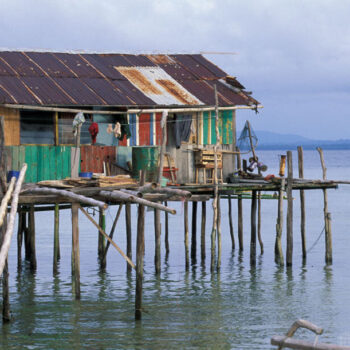The Paris Agreement was signed by 174 countries in New York last month. Now, governments are starting the ratification process, which will formalise their climate change objectives, or Nationally Determined Contributions (NDCs). This process leads all these countries to the same question – how do we turn our NDC into concrete action on the ground?
In the past four years here at E3G, we have been working with a number of Latin American governments to start a dialogue on how the financing and implementation of climate change objectives can be done. What we’ve learned from this process is that every country has a very different set of challenges and opportunities when it comes to climate mitigation, adaptation and development objectives. As a result, while learning from other countries can help with the implementation of NDCs, understanding local circumstances is vital to get momentum behind transformational change.
Many governments haven’t fully appreciated this point – solutions that work in one country have failed elsewhere. The success of micro-financed solar panels in parts of Bangladesh and India has been replicated in Kenya. But Kenya lacked the local micro finance institutional capacity to reach out to a dispersed population and provide after-sales service so wasn’t able to deliver the levels of finance needed. Instead new solar payment schemes developed that were based on mobile money – building on local products and services as well as geographic, economic and social circumstances. One size will not fit all.
Our work in Chile has given us firsthand experience of some of these challenges. Over the past year we have been working with the Chilean government to develop a National Finance Strategy for its climate change objectives.
Chile is already heavily affected by climate change with material impacts on economy and society, which requires fast action on adaptation and resilience. The rise in average temperature and decrease in rainfall is of particular concern for agricultural productivity. These changes are significant for the Chilean economy – agriculture accounts for around 9% of GDP, it’s the main source of revenue in many regions of the country, and makes up 18% of exports.
Climate change has a significant impact on the Chilean society too. The vast majority of agricultural land in Chile is owned by a small number of farmers, whilst the remainder is owned by a much larger population of small-hold and family agriculture operations. As these small-hold farmers are particularly vulnerable to climate change, its effects will exacerbate inequality and social unrest.
In recognition of these issues, one of the main focuses of Chile’s development agenda is empowering small-hold farmers and family agriculture. Recent efforts have gone into managing the impacts of higher frequency and intensity of extreme weather events, given the impact that they can have on agriculture. This year, a new government department is being created, which will specialise in risk management to address problems of climate disasters in agriculture with a particular focus on smallholders.
The government also highlights the need for sustainable irrigation and water management. But implementing these measures requires farmers to access finance for new technology and processes – and this is a major bottleneck. Commercial banks do not usually lend on such small scale, and do not have credit lines designed for climate change adaptation and resilience measures. Other countries in the region, including Colombia and Peru, have found solutions to this problem by forming associations of smallholders which have been a useful tool for accessing loans collectively. However, small-hold farmers in Chile are not used to taking such an approach for reasons that are routed in cultural and historic circumstances, and as a result are unable to obtain finance in this way. Currently, the government provides loans and grants, but this is not sufficient. Financial inclusion and engagement with local communities and commercial banks will be central to develop the necessary solutions.
This example shows the need to take into account local economic and social circumstances to ensure that public interventions are effective in leveraging private capital. But how can this be realised? One approach is to foster a dialogue among the local public sector, civil society, academia as well as the private sector (i.e. producers and banks) so that local, cultural and business specific structures can be properly understood and addressed.
Chile has experience with this approach. Ahead of Paris, the Chilean government held public consultations for the development of the country’s 2030 climate change objectives. Building on this experience, the involvement of society and economy should be central to NDC implementation – not only in Chile, but worldwide. The challenge of climate change can’t be solved by a global agreement or national plans and policies alone, but requires the involvement of all stakeholders and sectors of society and economy to ensure a transformational change. In the years to come, there is a great opportunity for countries to enhance participation at the local level to integrate a bottom-up approach in governments’ planning and implementation in order to ensure that the Paris Agreement gets down to action on the ground.


